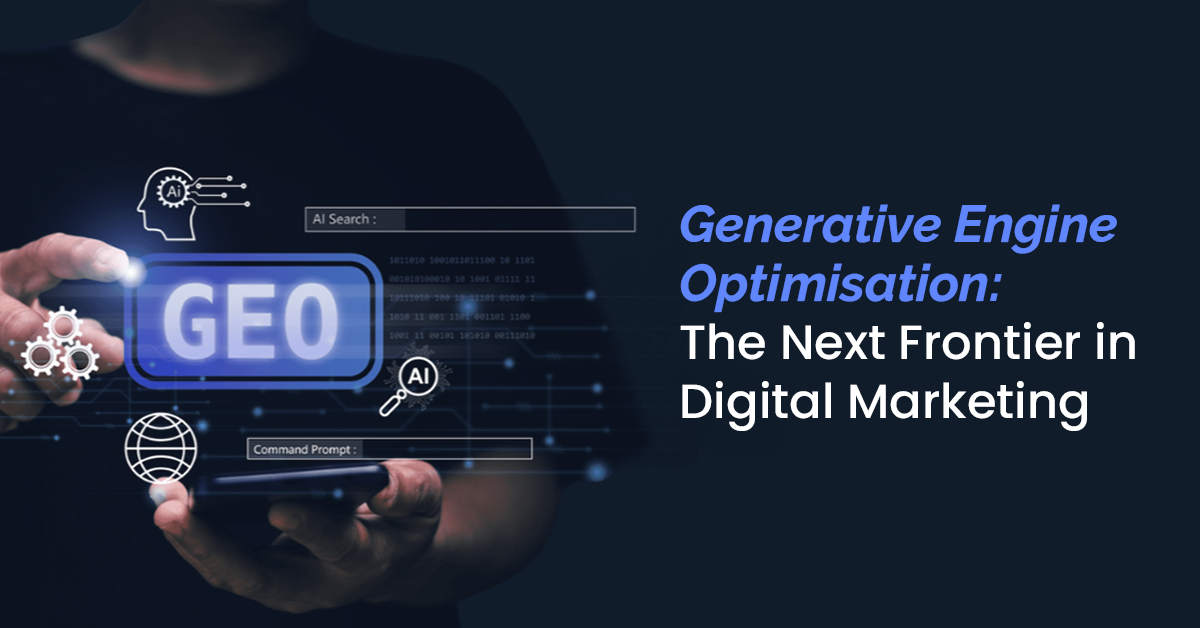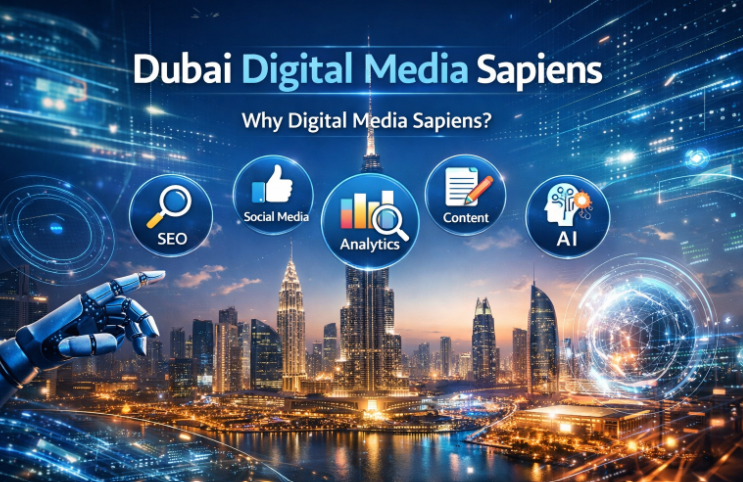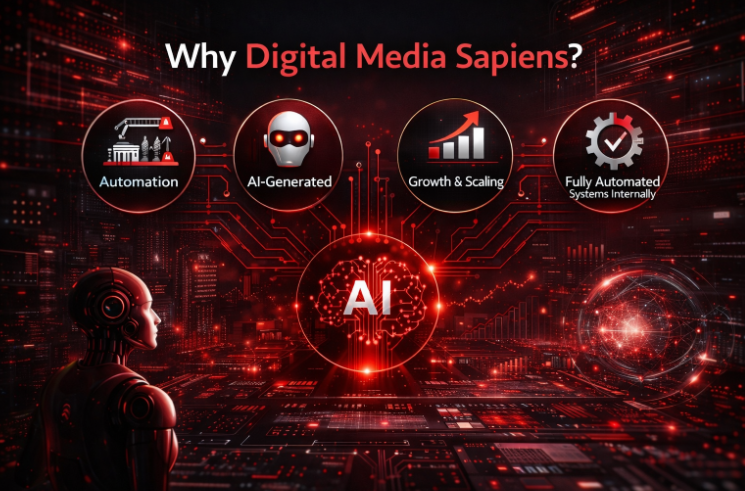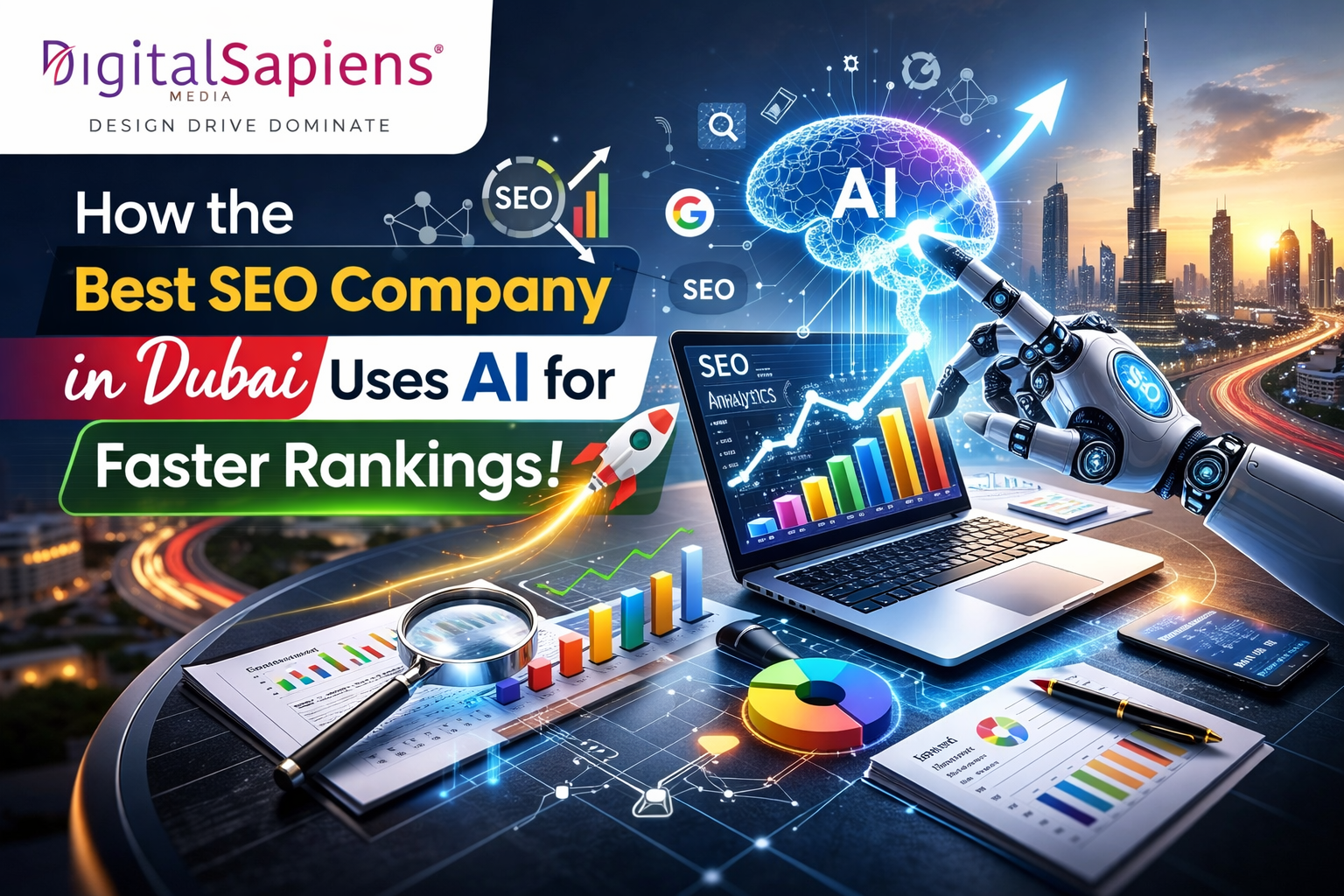In the fast-changing world of online marketing today, 2025 is decision time. Old Search Engine Optimisation (SEO) is still in charge, but the way people search no longer is. Increasingly, they’re asking their queries on AI platforms—ChatGPT, Gemini, Perplexity, and Google AI Overviews—demanding simple, chat-based answers. And that has introduced the new art: Generative Engine Optimisation GEO and AEO is the new norm.
For agencies like Digital Media Sapiens, the future game plan for GEO is not a trend but the blueprint to follow. Own will be AI-driven search experiences for those who act fast, and invisible will be the brands that don’t hop on to the new game plan.
What is Generative Engine Optimization?
Generative Engine Optimization is the science and art of content optimization to be readable, quotable, and uncovered by deep language models and AI-driven search engines in their response. Classic SEO as a static web page ranking system on SERPs, in GEO is answer visibility. It’s all about becoming authoritative, structured, and discoverable by AI models so that your content is a constituent of answers served directly to customers.
GEO combines technical optimisation, content authoritativeness, and trust signals in a more sophisticated manner than previous keyword targeting. GEO includes entity consideration, semantic relevance, structured data, and conversational intent. Generative Engine Optimization is the key factor as only 1% traffic is bringing 1% conversions.
Why GEO is Important in 2025
Search behavior has been revolutionized. With your busy all lives, no one is left with time to go through ten blue links anymore; they must be provided with the complete answer within a single interaction. What that implies is that links will no longer be there for brands on SERPs anymore. Rather, they must ensure that the AI engines provide an abstract of their knowledge and quote them as authority sources.
Generative algorithms prefer Authoritativeness, Trustworthiness, and level of topic. E-E-A-T content that stands out will be far more likely to be referenced. For agencies, it’s a challenge and an opportunity. GEO buying today is a victory for brands to lead in a market where plenty of competition still holds on to the past.
The future hybrid will neither be an SEO nor a GEO choice. They will co-exist with each other. Old-school rankings continue to drive traffic, but GEO adds the cleverness of a brand into organic language search results. That two-fisted approach is how businesses will maintain market share in the more AI-heavy world. And everyone is searching on Chat GPT or rather talking to Chat GPT, Gemini or Perpexality, etc
Basic Strategies for Generative Engine Optimisation
Success in GEO relies upon technical, creative, and strategic blending. The most vital practices Digital Media Sapiens and clients need to follow are as follows.
1. Entity and Semantic Relevance focused ROI
Generative algorithms process semantic relations rather than keywords. Texts need to identify entities—words, brands, products—indeed and how they are linked. Entity-optimisation allows businesses to enable AI to learn context and select its content while developing solutions or answers in Google at the top.
2. Schema Markup and Structured Data
There is more formatting and metadata than ever that counts today. Schema markups on How-To’s, FAQs, reviews, or products provide clean data to be easily digested by AI algorithms. If data is clean, it is probable that generative models will quote it within their output in Questions and Answers for the Google AI detector.
3. Answer-Centric and Conversational Content is the key
Users question AI engines just like they would question another human. That is, copy must be created as a response to such natural language questions as “What is the most effective online advertising strategy in Dubai in 2025?” or “What are some of the tools that are behind generative engine optimization?” The more human and descriptive the responses are, the higher the probability of them getting exposed or showing up on top.
4. Develop Topical Authority
Depth, rather than width. A single piece of content about a topic is insufficient. Rather, brands must post sets of similar content that illustrate depth on similar subtopics. This sends credibility and trust signals to search engines and generative models at all times, as this is the machine/an algorithm.
5. Credibility and Trust Signals Optimise
AI engines can recognise that a source is credible. Material ought to quote credible sources, apply expert opinion, and properly use stats. Subpar-sourced or outdated material will have low prospects of being chosen if AI is in charge of what to summarise.
6. Be Technically Brilliant
Technical site health is still crucial. Page speed, mobile friendliness, code clarity, and crawlable structure still affect discoverability. Even generative engines themselves rely partly on crawled material to build their knowledge base.
7. Iterate and Watch with AI Feedback Loops
Where SEO is tracking, GEO is analysis. The agencies must be able to track where and when their content emerges in AI-generated output. Backstage feedback allows for tuning—formatting adaptation, authority signal boost, and conversational intent optimization.
Trending Keywords 2025
Competitive content strategies must include trending search terms organically. The leading keywords of 2025 are:
- Generative AI search
- AI-powered search engines
- Conversational search intent
- AI Overviews
- Entity recognition and knowledge graphs
- AI citations and answer box visibility
- Topical authority and content clusters
- Schema markup and structured data
- E-E-A-T signals
- GEO and SEO hybrid strategies
- Voice and multimodal search
- AEO focused Question and Answers
When used in conjunction with intent, these jargon are provided visibility in classic search and opportunities to be quoted in generative results.
A Practical Example
For instance, a fintech business aiming to rank for the phrase “best payment gateway for SMEs in the UK.” Old-school SEO would be to develop a comparison page full of keywords. GEO is more intelligent.
The content needs to:
- Define “SMEs,” “payment gateways,” and “UK compliance.”
- Contain structured tables marked up with schema for integration and cost comparison.
- Provide plain Q&A type answers to the question type “Which payment gateway offers Shopify integration for small UK businesses?”
- Use government reports, expert views, and credible statistics.
- Keep refreshing the page to capture any shift in regulation or charge.
Done correctly, it not only gives a good Google ranking but also repeated citation in generative answers when people ask the very same question of AI systems.
Challenges and Ethical Considerations
Where there is opportunity, there is complexity. Generative models are not perfect; they quote inaccuracies, attribute incorrectly, or hallucinate. It cannot therefore be possible to be correct then. Agencies must therefore invest in in-your-face fact-checking and diligent sourcing.
Instability within algorithms is also a problem. AI platforms get daily updates, and what seems possible today will have to be rewritten tomorrow. GEO thus needs to be agile and flexible.
Lastly, there is brand moral voice. One doesn’t have to be genuine to be sacrificed in an effort to write for the generation AI. The very best feedback will cut through the harmony of optimisation with human-interest driven narrative, machine needs and brand values upheld and unique.
How Digital Media Sapiens Can Help Showcase Visibility for your brand in 2025/2026
Digital Media Sapiens being a performance marketing agency, has the perfect positioning to be GEO champions. The way ahead would be:
- Content audit for AI readiness.
- Entity mapping, structured data, and conversational writing training for the team.
- Intersection of SEO, paid media, and analytics with GEO as one of the key offerings.
- AI citation tracking by using next-generation tracking technology.
- Developing rich content roadmaps with emphasis on depth of topic and authority.
- Testing across multiple modes—videos, podcasts, infographics—that propel multimodal AI engines.
- We guarantee results for AEO, GEO and Google searches.
This active leadership puts the client centerstage not just in search but in human feedback in greater demand.
What’s to Come
GEO and AEO is not a trend, it’s the inevitable next chapter of online advertising. With voice search, multimodal input, and conversational AI on the main stage, GEO and AEO will be the brand differentiator between those heard and those silenced.
The future is in hybrid solutions. SEO will keep getting the rankings, but GEO will decide if your brand authority is included in AI-answered searches. Both will produce visibility, credibility, and authority in a more machine-mediated world of discovery.
Conclusion
Generative Engine Optimisation and Answer Engine Optimization is a ten-year window of opportunity and need. To grasp it now, here and now, Digital Media Sapiens can bring clients to the stage where visibility will no longer be enough—brands have to be quoted, mined, and trusted by search-engines tomorrow.
The question is not when and whether GEO will revolutionize online marketing, but when are you prepared to flip. The people who will win here are the people who flip. The people who will lose will be at the back of the shadow of AI discovery.
















